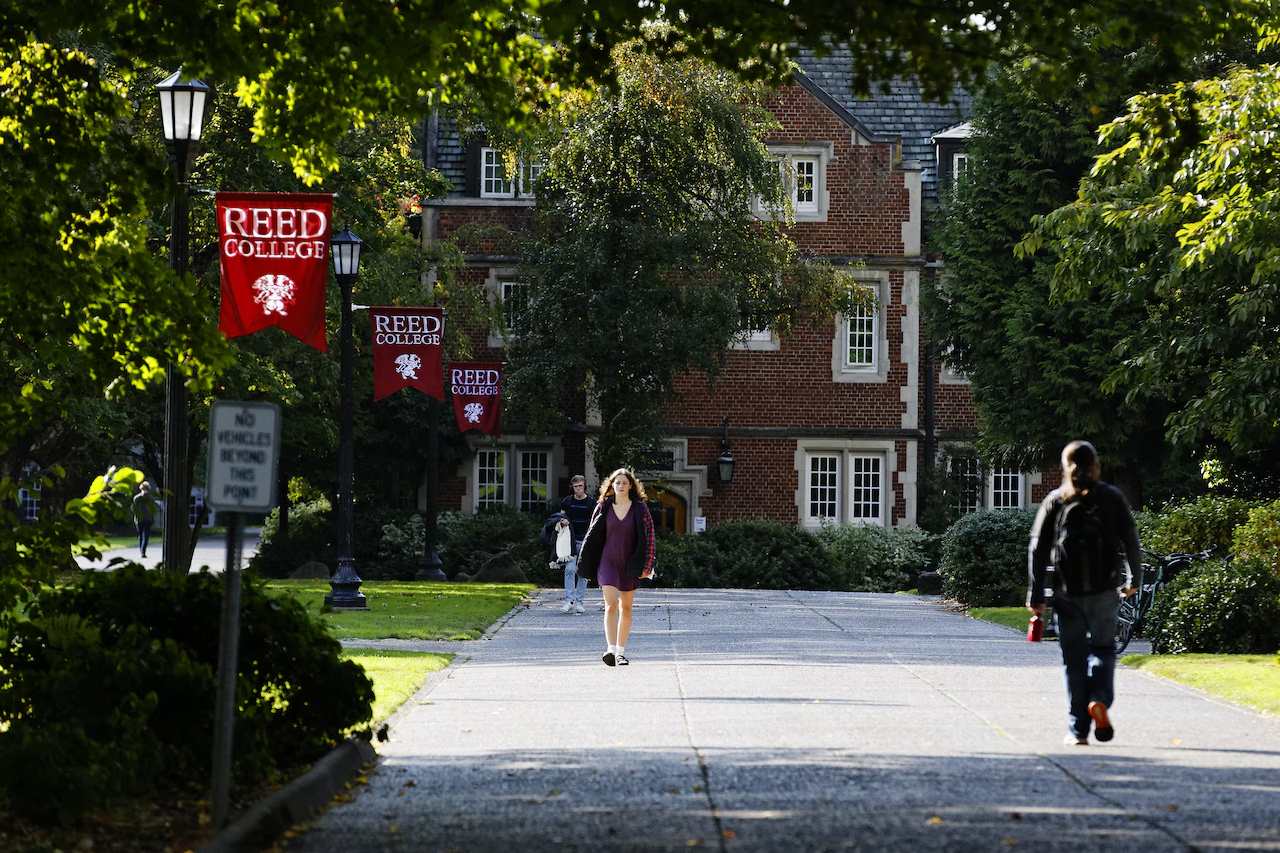PORTLAND, Ore. — Reed College announced Friday it has dismissed its longtime community safety director, Gary Granger, after determining he violated college policy by disclosing an alumnus’ personal information to the FBI without a subpoena or warrant.
The move followed months of internal review and public debate over campus privacy, law enforcement cooperation, and institutional accountability.
Leadership Announces “Change in Direction”
Reed College President Audrey Bilger and Karnell McConnell-Black, vice president for student life, informed the campus community by email of the decision to part ways with Granger, who had served in the role for over 15 years.
Also Read
They described the leadership change as necessary to restore trust and reaffirmed the college’s commitment to community privacy. “Our investigation has been informed by our values, including the privacy and trust of our community members,” the email stated.
Two assistant directors who assumed acting leadership during the investigation will continue in their roles until a permanent replacement is named.
Granger Defends His Actions
Granger, who earned $162,000 annually in the role, said he was notified of his termination Friday, effective Oct. 1. He insists his actions were lawful and appropriate.
According to Granger, an FBI agent contacted him directly about alumnus Robert Jacob Hoopes, a suspect in an assault on a federal officer during protests outside Portland’s ICE facility in June. He said he provided the agent with Hoopes’ local phone number and address from the alumni directory — information he claims was routine.
“This disclosure came to an FBI agent investigating a violent crime,” Granger said. “The person alleged to have committed it happened to be an alum of the college and the person hit happened to be an ICE agent. I have shared information with law enforcement numerous times, but it just didn’t end up in the press.”
He accused Reed of caving to political pressure from donors. “If I had assisted someone who had been the victim of a hate crime, I would still be working,” he argued.
How the Case Unfolded
In July, The Oregonian/OregonLive reported that federal investigators used surveillance footage, facial recognition software, and public images to identify Hoopes as the suspect.
The affidavit said FBI investigators spotted a tattoo on a suspect’s forearm in surveillance video outside the ICE facility. A news photo published by The Oregonian showed a man with a matching tattoo. Investigators ran the image through commercial facial recognition software, which produced about 30 possible matches, including a photo from Reed’s own Canyon Day event in April 2023.
The software also pointed to an Instagram account under the name “Jacob Hoopes.” The FBI then contacted Reed, where Granger confirmed Hoopes was an alumnus and provided his contact information.
Shortly afterward, Reed leadership placed Granger on administrative leave and launched an independent investigation.
College Policy and Privacy Concerns
Reed’s website states that the college does not release directory information — such as names, addresses, or phone numbers — to third parties, except as required by law. However, it also notes that such “directory information” may be disclosed without prior student consent.
In recent months, Reed officials had issued guidance instructing staff not to share information with law enforcement, including immigration officials, without a warrant or subpoena. Granger’s disclosure, administrators said, violated that directive.
In Friday’s message, Bilger and McConnell-Black emphasized the college’s values: “We reaffirm our commitment to accountability, privacy, and respect as we move forward.”
Charges Against Robert Jacob Hoopes
Hoopes, 27, was indicted in U.S. District Court in Portland on two counts: aggravated assault on a federal employee with a dangerous weapon and depredation of federal property.
Prosecutors allege that on June 14, during protests at Portland’s ICE facility, Hoopes threw a rock that struck a federal officer in the face. He has pleaded not guilty and remains free pending trial.
Community Divided
The controversy has stirred strong opinions on and off campus. Supporters of Granger argue that he acted reasonably in response to a violent crime investigation. Critics, however, believe his cooperation with federal authorities compromised community trust and violated Reed’s stated commitment to protecting privacy.
When read the college’s announcement by a reporter, Granger questioned its intent. “Did they affirm their values to support violence in the name of political speech?” he asked.
What Comes Next
As Reed searches for a new community safety director, administrators say they hope to restore confidence shaken by the episode.
“We recognize that this has been a difficult and concerning time for many, and we are grateful for the engagement, patience and trust of the Reed community,” Bilger and McConnell-Black wrote.
Meanwhile, Hoopes’ federal case moves forward, and questions remain about how far colleges should go in cooperating with law enforcement while balancing the privacy of their students and alumni.












